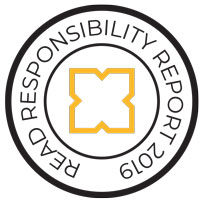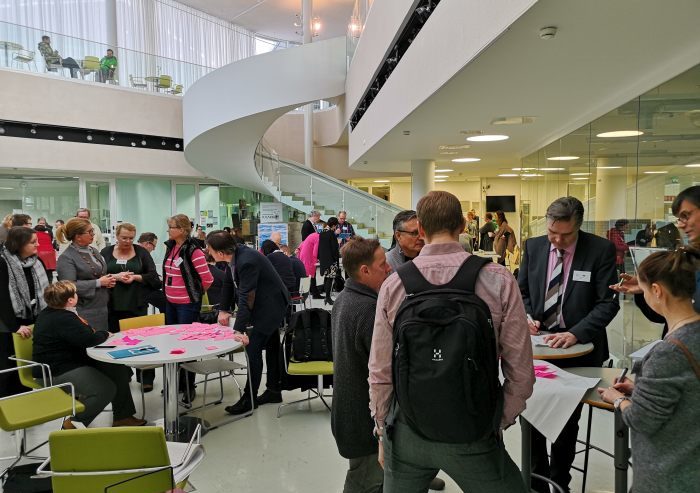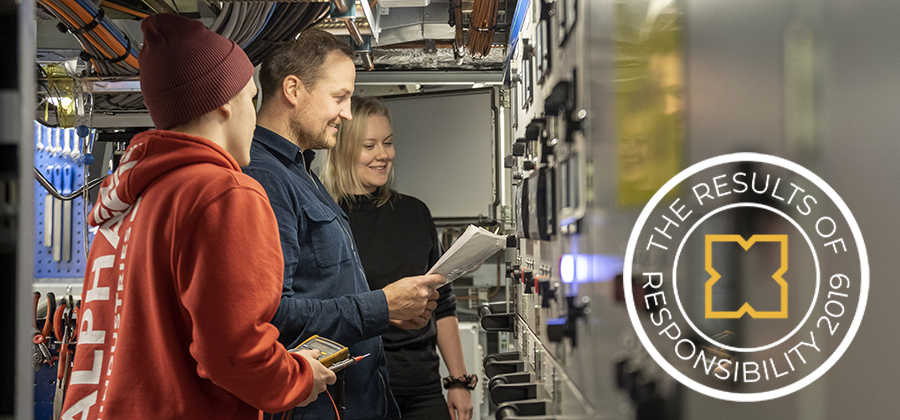 In 2019, we revised the curricula of all degree programmes at Xamk. The objective was to enhance synergies between the programmes and enable future-oriented education that is part of Xamk’s strategy.
In 2019, we revised the curricula of all degree programmes at Xamk. The objective was to enhance synergies between the programmes and enable future-oriented education that is part of Xamk’s strategy.
The revision was planned collaboratively. The workshops for management focused on verifying our joint goals and identifying opportunities for synergy. The future-oriented workshops outlined a picture of future needs in co-operation with employers and students. The student-centred workshops shared best practices and improved understanding of students’ needs by means of service design and drama.
The revision increased flexibility

Different courses and study modules shared by all the programmes were developed as a result of the revision. They enable co-operation between teachers in the development of content and methods and promote equality between campuses and degree programmes. For students, the revision means more flexibility in the planning of their studies, enabling online studies and alternative study paths.
Now we can better utilise all the know-how we have at Xamk, increase co-operation between degree programmes and between campuses and promote efficient use of resources. In addition, continuous learning is enabled and students can graduate on schedule.
Easier to combine study and work
The range of complementary competence studies offered by Xamk MasterSchool for all postgraduates was updated in 2019 to better match Xamk’s strategy. We paid particular attention to the utilisation of students’ workplace contacts and closer co-operation between teaching and RDI activities.
The curricula at Xamk have been built to enable the application of work-integrated pedagogy. Xamk teachers tested the updated model in practice on the Totem project of Finnish higher education institutions. The project studied and developed pragmatic models for combining work and higher education studies. The results of the project were published in the report Työn ja oppimisen liitto (Kotila & Vanhanen-Nuutinen 2019).
We enhanced co-operation between teaching and workplaces also through teachers’ work placements. In 2019, six teachers from Xamk’s School of Technology piloted new ways of integrating teachers’ work placements and teaching. In addition to professional development, the piloting resulted in student projects and new ways of co-operation between Xamk and workplaces. The teachers first reported their experiences in 2019 and will do so again in 2020 in various publications.
The scores given by Xamk students to the development of education in various surveys have improved steadily in recent years. The scores given to studying and working environments have also improved. The results and development are shown in the figure below.
(The average scores from undergraduates in 2017 and 2019 were 3.2 and 3.7, respectively, and from postgraduates 3.7 and 3.9, respectively. In the AVOP survey conducted in 2017, undergraduates and postgraduates both gave an average score of 4.5 to workplace contacts. In the 2019 survey, the average score from undergraduates was 4.6 and from postgraduates as high as 5.3.)
Increasing importance of a customer-oriented approach
A desire and ability to adopt a genuine customer-oriented approach are essential for the future development of teaching. Only solutions that provide our customers (students, companies and networks) with added value are worth developing.
In addition, we need expertise and tools for co-development across the network, as well as courage and the community’s support for experimentation. In this way, customers can start testing the results of our work as early as possible.


